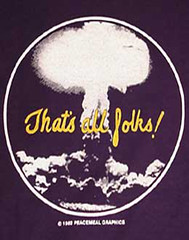
Everywhere you look, people say social media is about conversations … conversations … conversations … conversations … conversations … and conversations.
I have a friend who is an artist, and he sometimes takes a view which I don't agree with. He'll hold up a flower and say, "Look how beautiful it is," and I'll agree. But then he'll say, "I, as an artist, can see how beautiful a flower is. But you, as a scientist, take it all apart and it becomes dull." I think he's nutty. — Richard P. Feynman
When it comes to social media, I tend to look at it as a strategic communicator and not as a conversationalist. Sure, I see social media can be used for conversations, but I also see it as an effective communication tool for engagement, which is not unlike how many social media experts got their start.
From their original content, conversations arose. And there seems to be some value in that, especially when those conversations aspire to provide some level of academic review and criticism.
As such, I've had some great conversations with people at every level of the so-called online influ ... er ... popularity scale. But I also recognize that these conversations have a purpose to further the space or fine tune speaking points for educational purposes. These conversations aren't really about business at all. But I wonder if they recognize that too.
I stuck my finger in, and started to read: "Triboluminescence. Triboluminescence is the list emitted when crystals are crushed ..." And there, have you got science? No! You only have what the word means in terms of other words. You haven't told me anything about nature—what crystals produce light when you crush them, why they produce light. Did you see any student go home and try it? He can't. — Richard P. Feynman
It seems to be the same for business. They are told to apply conversations to social media, but they can't. Why not? Because social media is a medium and conversations are only one aspect of it. And more often than not, conversations are not about business.
When you look at almost every study that came out this year, you'll find less than 30 percent of online participants produce original content in the United States. Of course, there are many other ways to participate. Reading a blog is participation. Watching a video is participation. Digging a story is participation. There are hundreds of other ways people participate too.
But are all those activities really conversations? And of those that are conversations, how many are personal? And how many of those conversations have no interest in allowing company representatives into the conversation? And among those conversations that aren't personal, how many of them can the company count as actually occurring with customers?
Or, how many of those conversations will most people never see because they are really taking place away from the originating site … on other blogs, in forums, in social networks, and in real life? And knowing this, then why would comments be a conversation measure, especially when some folks follow a comment for comment rule?
Sure, there are some consultants that have leveraged conversations solely because their primary income is derived from book sales and public speaking. But, for the greater majority of business endeavors, it seems to me that the overemphasis on conversation is only leading to some questionable practices.
Consider Magpie on Twitter or apply any number of common examples such as Direct Messages from new Twitter followers that declare "I like you. You can connect to me here, here, and here." Or more covert, dropping in client names from time to time, without the usual objectivity filter on those client products. Or more covert, screening people to friend and follow based upon keyword searches (e.g. mention divorce and a lawyer might "friend" you for a "conversation").
Social media is not only about conversations. And social media experts might know it if they listened to businesses as much as they tell these businesses to listen to their customers. But most of them won't. They're too busy having conversations with everybody else.





















